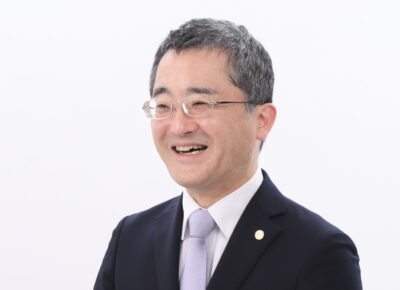Q.3 Pension Payment Review
A.3 How thoroughly is the payment status of pension contributions examined?
A.3 Generally, your pension payment status for the most recent one year is formally reviewed, but the practical scope of examination can be much broader.
Summary of Key Points
- Official Requirement: Official documents often require submitting proof of public pension insurance payments for the most recent one year (“直近1年分の写し等”).
- Proof Duration: The Japan Pension Service (Nenkin Jimusho) can often issue payment certificates covering up to the most recent two years.
- Arrears (Unpaid): If you have unpaid contributions, there is often room to resolve this via the post-payment system (Tsuinō), which generally covers the past 10 years (conditions apply).
- Practical Scrutiny: Due to variations in the practical requirements of different Legal Affairs Bureau branches and individual examiners, the scope can be extended. If doubts arise about your conduct, the Legal Affairs Bureau may require proof of payments for two years or more.
Detailed Explanation
1) Which Period of Pension Contributions is Examined? (Official vs. Practical)
| Review Aspect | Details |
| Official Guidance | The Legal Affairs Bureau guides state that applicants should submit copies of payment certificates (“公的年金保険料の納付証明書”), statements (“ねんきん定期便”), or receipts for the most recent one year of contributions. |
| Pension Office View | The Pension Office can issue certificates (“社会保険料納入証明書” / “納入確認書”) that may cover the most recent two years, depending on the specific document type. |
| Practical Reality | In actual practice, examiners may request confirmation or explanation regarding your payment history for two years or even longer. Any non-compliance (unpaid or delayed payments) will affect the determination of the Good Conduct Requirement (素行要件) under the Nationality Act. |
2) Why is Pension Payment Status Scrutinized?
Naturalization screening is a comprehensive judgment based on various factors, including the Residence Requirement, Capacity Requirement, Good Conduct Requirement, and Livelihood Requirement.
Pension payment status is primarily checked under the Good Conduct Requirement (to see if you uphold laws and duties) and the Livelihood Requirement (to assess stability, social security enrollment, and tax compliance). Non-payment or delinquency may require explanation and can be detrimental to your application.
3) Typical Pension-Related Documents for Submission
The following documents are generally required (based on Legal Affairs Bureau guidelines and practical examples):
- Copy of the Nenkin Teikibin (Annual Pension Statement) (Most recent).
- Copies of Pension Insurance premium receipts (or transfer confirmation notices).
- National Pension Premium Payment Confirmation or Insured Person Record Inquiry Response issued by the Japan Pension Service (obtained at the Pension Office).
- For company employees (Kōsei Nenkin): Proof of enrollment and premium payment (receipts or Social Insurance Payment Certificate issued by the employer).
- If premiums were exempted or deferred: You must submit copies of the Exemption Approval Notice.
(Follow the instructions provided by your local Legal Affairs Bureau regarding “which documents” and the “number of years” required. Most guides specify the most recent one year.)
4) Dealing with “Arrears” (Unpaid Contributions)
- Check for Post-Payment (Tsuinō): If you were granted an exemption or deferment, you may be eligible to make post-payments (追納) for the exempted period, generally covering the past 10 years (confirm eligibility and conditions with the Pension Office).
- Practical Resolution: If there are arrears at the time of application, the Legal Affairs Bureau often instructs the applicant to pay the outstanding amount immediately and submit the receipt. Submitting receipts for post-payments usually resolves the issue, but some examiners may still require a written explanation for the initial delinquency.
- Exemption/Deferment: If you received an exemption or deferment, submit the Approval Notice. You should still deal with any post-payment windows if possible.
5) Practical Preparation Checklist
- Log in to Nenkin Net to check and print your payment history.
- Gather copies of existing Nenkin Teikibin, payment notices, and receipts.
- If you have no documents, request a payment confirmation certificate from the Pension Office.
- If you have arrears, consult the Pension Office immediately regarding the Tsuinō (post-payment) option and complete the payments to obtain the necessary receipts.
- If you received an exemption or deferment, obtain and attach the official Approval Notice.
- Once you have gathered the documents, schedule a pre-consultation with your local Legal Affairs Bureau to confirm the exact period they will examine and if any additional documents are required for your specific circumstances.
6) Common Misconception
It is not guaranteed that your application will be approved simply by paying all outstanding contributions in a single lump sum just before applying. While this corrects the payment record, the Legal Affairs Bureau also assesses the substance of your conduct. They may request an explanation for the delinquency (e.g., why payments were missed) and proof that your current income can sustain continuous future payments.
Please also read the following pages.
Q.1 Can I maintain dual citizenship with my home country after naturalizing?
Q.2 Can I apply for naturalization and a Permanent Resident Visa at the same time?
Q.3 How thoroughly is the payment status of pension contributions examined?
Q.4 How thoroughly is the payment status of health insurance contributions examined?
If you have any questions, please feel free to contact our office anytime. (Consultation is free)
Permanent Resident Visa – Yokoyama Daisuke Certified Administrative Procedures Legal Specialist Office (Tokyo/Shinjuku)
Registered Support Organization Application and Renewal – Yokoyama Daisuke Certified Administrative Procedures Legal Specialist Off

